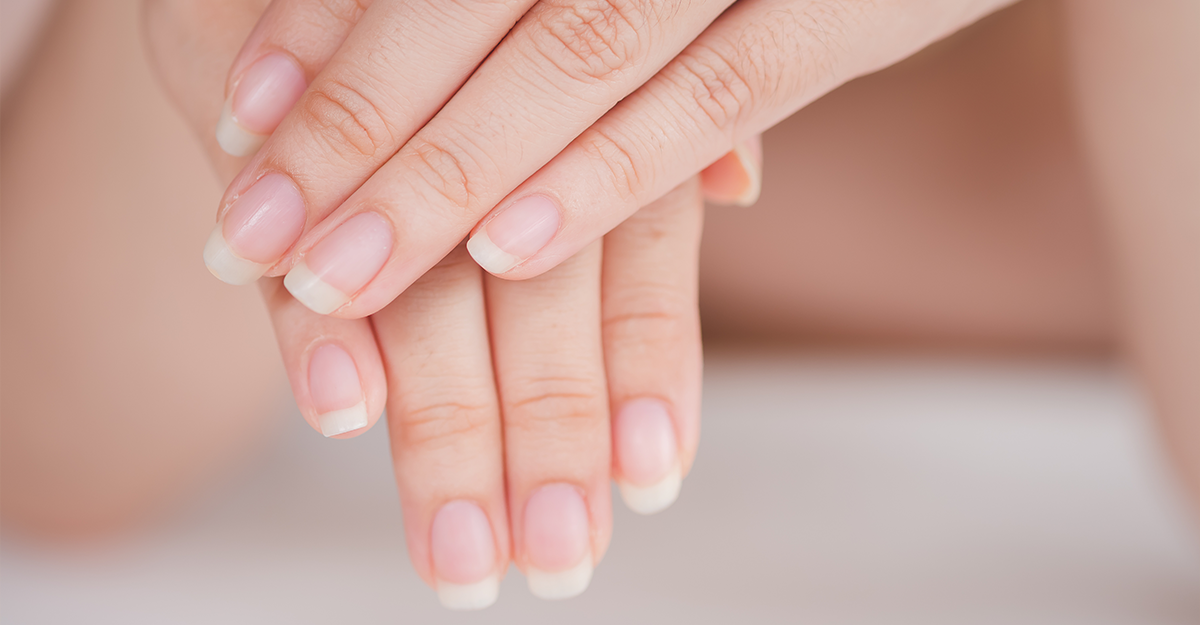
How Vitamin B12 Deficiency Affects Nails
You probably don’t give too much thought to nail health until you notice discoloration or other nail changes. Over 10% of all dermatology appointments are for nail issues. While the dermatologist may have some treatment options, it may not always address the nutritional deficiencies that affect nail health, namely vitamin B12 deficiency.
“Over 10% of all dermatology appointments are for nail issues. While the dermatologist may have some treatment options, it may not always address the nutritional deficiencies that affect nail health, namely vitamin B12 deficiency.”
Good nutrition is essential for overall wellness and healthy nails. And interestingly, how the nails look can provide clues to systemic health. For example, blue nails could mean the nails aren’t getting enough oxygen, prompting your functional medicine doctor to ask why.
Keep reading as we explore vitamin B12 deficiency, corresponding nail symptoms, and how to improve nail growth with vitamin B12 supplements.
Vitamin B12 Deficiency
Vitamin B12 is an essential, water-soluble nutrient involved in the synthesis of red blood cells, DNA, methylation, and energy production. Every cell in your body needs a constant supply. Low B12 levels lead to red blood cell abnormalities, anemia, and various health issues. (Source 1)
Risk factors for vitamin B12 deficiency include:
- Pernicious anemia
- History of gastrointestinal or bariatric surgery
- Use of medications such as proton pump inhibitors and metformin
- Vegetarians and diets low in dairy products, animal protein, and fortified cereals (Source 1)
- Malabsorption issues (Source 1)
The best treatment for vitamin B12 deficiency is supplementation. High oral doses of vitamin B12 (1000 – 2000 mcg) are as effective as vitamin B12 injections to optimize blood levels of B12. (Source 1)
Vitamin Deficiency and Brittle Nails
Nails are made from keratin protein and minerals. They grow 2 to 3 millimeters per month. A whole new nail will take six to nine months. Most nutrients are involved in the process in some way, including vitamin D, vitamin A, vitamin C, calcium, zinc, iron, collagen, fatty acids, biotin, folate, and vitamin B12. Nutritional deficiencies inhibit growth or lead to brittle nails and other issues. (Source 2, 3)
Let’s look at some specific deficiencies and how they show up in the nails:
- Iron – Iron deficiency can cause koilonychia, a condition where the nails become soft and spoon-shaped. It can occur on the fingernails or toenails. (Source 4)
- Zinc - Zinc deficiency and other mineral deficiencies may cause white spots on the nails, called leukonychia. Leukonychia can occur on the nail plate (the hard part of the nail) or nail bed (the skin under your nails). Other causes are fungal infections and allergies.
- Vitamin B12 – While vitamin B12 can affect the nail in many ways, it’s most associated with melanonychia, a hyperpigmentation condition. The nails become black or brown in color due to melanin (skin pigmentation) deposits. (Source 5)
Nutrient Repletion for Nail Health
Nutrient deficiencies can cause nail problems, and repleting nutrients can solve them. Because nails grow slowly, noticing improvements may take several months. However, you may notice other symptoms improve more quickly. For example, when you begin vitamin B12 supplementation, you can experience improved energy, cognition, and mood fairly quickly and changes to nail pigmentation takes longer.
Lack of vitamin B12 is a common root cause of nail conditions and is easily treatable with supplemental support. However, B12 requires many steps to absorption, and poor absorption is a common issue. Poor B12 absorption can inhibit the effectiveness of supplements. The solution is a liquid vitamin B12 spray absorbed in the mouth, bypassing the digestive tract.
Core Med Science Liposomal B12 Folate TMG Liquid Spray is physician-formulated with your well-being in mind. It’s highly absorbable and bioavailable to address vitamin B12 deficiencies effectively. The dose is easily titrated to your needs.
If you have nail issues, understanding the root cause is key. Don’t overlook the role nutrition plays, and use Core Med Science supplements as part of your nail care support.
References:
1. National Institutes of Health Office of Dietary Supplements. Vitamin B12: Fact Sheet for Health Professionals. Accessed 1/18/24 at https://ods.od.nih.gov/factsheets/VitaminB12-HealthProfessional/
2. Cashman, M. W., & Sloan, S. B. (2010). Nutrition and nail disease. Clinics in dermatology, 28(4), 420–425. Abstract: https://pubmed.ncbi.nlm.nih.gov/20620759/
3. DiBaise, M., & Tarleton, S. M. (2019). Hair, Nails, and Skin: Differentiating Cutaneous Manifestations of Micronutrient Deficiency. Nutrition in clinical practice : official publication of the American Society for Parenteral and Enteral Nutrition, 34(4), 490–503. Abstract: https://pubmed.ncbi.nlm.nih.gov/31144371/
4. Singal, A., & Arora, R. (2015). Nail as a window of systemic diseases. Indian dermatology online journal, 6(2), 67–74. Full text: https://www.ncbi.nlm.nih.gov/pmc/articles/PMC4375768/
5. Brescoll, J., & Daveluy, S. (2015). A review of vitamin B12 in dermatology. American journal of clinical dermatology, 16(1), 27–33. Abstract: https://pubmed.ncbi.nlm.nih.gov/25559140/
